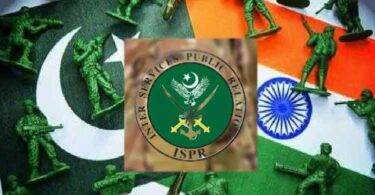

In retaliation to India’s unprovoked military strikes on the night of May 6 and 7, Pakistan Armed Forces launched a comprehensive counteroffensive, Operation Bunyan-un-Marsoos, on May 10, formally concluding hostilities in the aftermath of the Pahalgam incident.
According to the Inter-Services Public Relations (ISPR), the operation was part of the broader strategic campaign Marka-e-Haq and demonstrated seamless coordination among the Army, Navy, and Air Force.
It targeted 26 key Indian military installations in a calibrated, proportionate response to what Pakistan described as India’s “reprehensible” escalation.
Employing advanced network-centric warfare, real-time situational intelligence, and precision-guided munitions, the operation showcased Pakistan’s integrated tri-service capabilities. Strikes involved Fatah series F1 and F2 missiles, loitering munitions, and precision artillery, hitting high-value targets across multiple domains.
Significant Indian airbases, including those in Suratgarh, Sirsa, Bhuj, Naliya, Adampur, Halwara, Pathankot, and Srinagar, sustained extensive damage. BrahMos missile storage sites at Beas and Nagrota—linked to prior civilian casualties—were destroyed, while Pakistan Air Force successfully neutralised S-400 air defense systems at Adampur and Bhuj.
Logistical and command hubs, such as the Field Supply Depot in Uri, radar stations in Poonch, and key command centers in KG Top and Naushera, were also taken out. Facilities in Rajauri and Naushera—allegedly used to train proxies involved in attacks on Pakistan—were targeted with precision.
Across the Line of Control, several Indian military posts responsible for civilian casualties in Azad Jammu and Kashmir were decimated, with ISPR reporting some positions raised white flags in surrender.
In a display of unmanned aerial dominance, Pakistani armed drones patrolled deep into Indian airspace, hovering over key locations, including New Delhi, to underscore Pakistan’s strategic reach. Simultaneously, cyber operations were launched to temporarily disable Indian infrastructure supporting military logistics and communication.
The operation, according to ISPR, not only highlighted Pakistan’s operational readiness and technological edge but also the unity and resilience of the Pakistani nation in the face of aggression.








